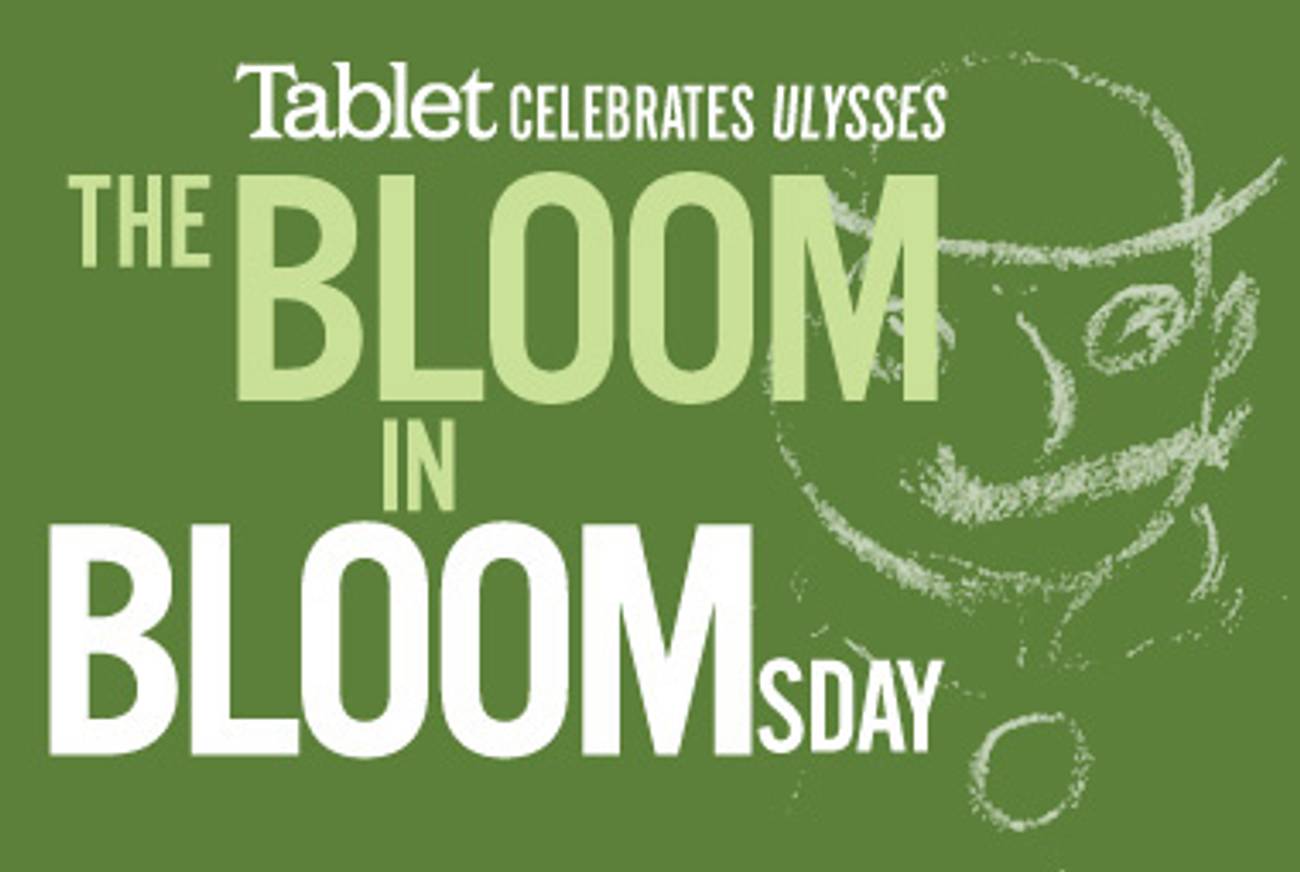The Big Jewish Novel
Why Leopold Bloom has to be a Jew




Columbia Professor Bruce Robbins once taught a seminar called “The Big Ambitious Novel in Contemporary America.” So, in the run-up to Tablet Magazine’s celebration of James Joyce’s Ulysses next Wednesday (a week from today!), I called him up and discussed the Big Ambitious Novel—from Ulysses to Witz, the new book from Tablet Magazine contributing editor (and Bloomsday celebrant) Joshua Cohen—and its Jewish roots.
Is there something intrinsically Jewish about the Big Ambitious Novel project?
It’s the internationalism. Joyce did that by making Bloom the universal figure. A figure of exile, in the sense of how Edward Said called himself the last Jewish intellectual, because his notion of what it was to be an intellectual is to be an exile. There’s something in the charge of rootless cosmopolitanism. Which continues to sound to me like it’s in our interest, maybe not all the time, to embrace. And that really does take you back to Bloom.
What prompted you to teach this course?
Well part of it was a desire just to teach really good things to students. It was also a bit out of a desire to argue with James Wood, who as far as I’m concerned is the origin of the phrase ‘big ambitious novel,’ in that Zadie Smith review. I think he believes, along with the rest of us, that the purpose of fiction is, as E.M. Forster said, “Only connect.” But authors of these novels have realized that the scale has become much larger, the project more difficult, because we live on an interplanetary scale now, and this is how you do that.
Where did your syllabus begin?
I started it with Gravity’s Rainbow. The novel at a certain point does what Pynchon does. You’re going to have to make a certain kind of connection.
How does Ulysses fit into all of this?
Ulysses is a kind of sacred book for me. Having a sacred book is a kind of odd thing. It’s the book that just turned my head around when I was 16 years old. As far as I know, I’ve never actually written about it.
I’m one of those who thinks it’s maybe the greatest novel ever written, and a great temptation for people to try to follow. I think of Colum McCann, or David Mitchell. [Mitchell’s] Cloud Atlas seems to me clearly inspired by Joyce—you do a different voice per chapter.
What do you remember about the first time you read Ulysses?
It’s such a wonderful trick that’s played on budding intellectuals. You think Stephen is the man. And you all of a sudden discover that he’s only Telemachus, and the Ulysses figure is this advertising canvasser. And I’ll say, as a Jewish kid at 16, discovering that the modern Ulysses was Bloom, and not the one I was supposed to identify with, was quite a moment.
Marc Tracy is a staff writer at The New Republic, and was previously a staff writer at Tablet. He tweets @marcatracy.